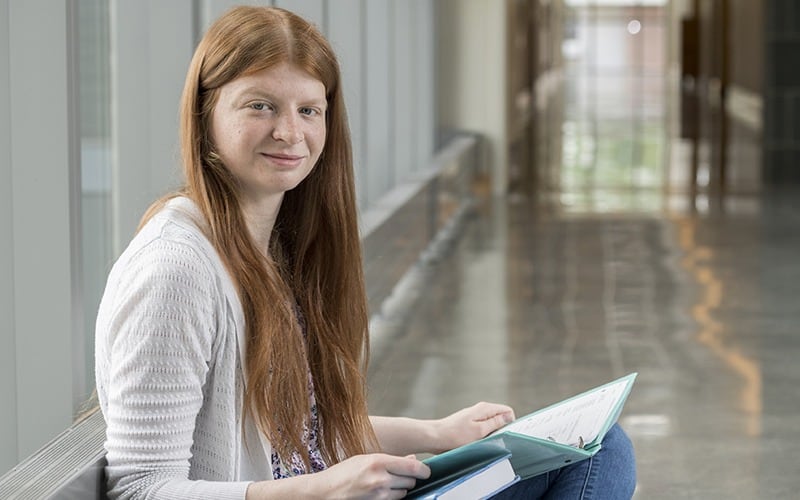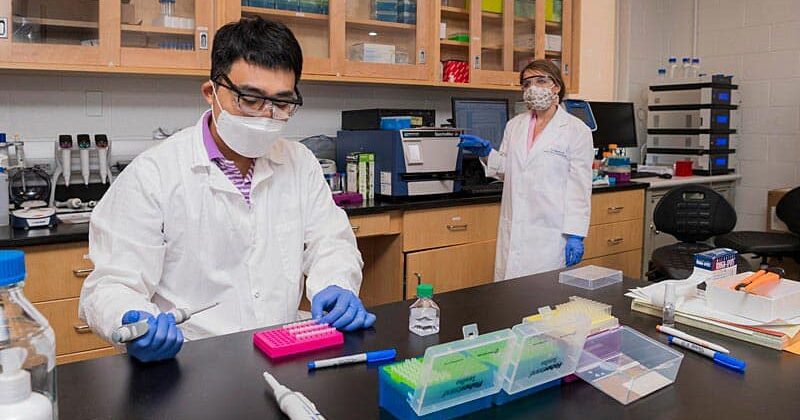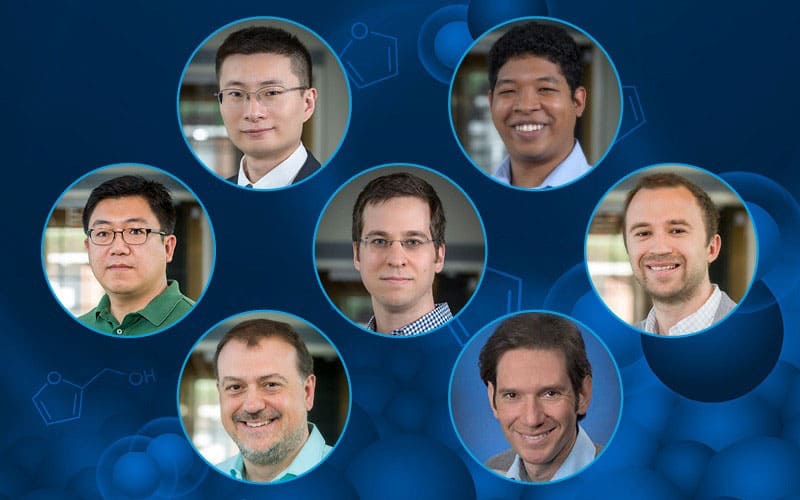 Research & Discovery
Research & Discovery
A Blog Devoted to UD Innovation, Excellence and Scholarship
Research & Discovery
A Blog Devoted to UD Innovation, Excellence and Scholarship
In her nature
ABOVE: Environmental engineering doctoral student Patricia Hurley is the 2019 recipient of the Laird Fellowship, an annual award that helps one first-year engineering graduate student at the University of Delaware pursue interests beyond his or her field of study. | Photo by Kathy F. Atkinson
UD grad student recognized for supporting first-generation college students, environmental causes
She also dedicates time to mentoring first-generation college students, sharing tips on how to apply for scholarships and graduate school.
Hurley, a well-rounded, passionate student, is the 2019 winner of the Laird Fellowship, an annual award that helps one first-year engineering graduate student at the University of Delaware pursue interests beyond his or her field of study. Laird Fellows are selected for balanced excellence, demonstrating intellectual capability and qualities such as character, maturity, sense of humor, creativity, ingenuity, and imagination, coupled with practical skills, perseverance, and the common sense necessary to execute ideas, according to the selection committee.
Hurley, a New Jersey native, joined UD in 2018 after graduating from Rowan University with a bachelor’s degree in civil and environmental engineering. As an undergraduate student, she was president of the Rowan Environmental Action League, a group that hosts on-campus cleanups and off-campus environmental trips. When Hurley arrived at UD, she immediately joined the Delaware Chapter of the American Water Resources Association, a group dedicated to raising awareness of local water issues and resources. She is also seeking other volunteer opportunities with local nature and environmental organizations. Nature keeps her grounded — it’s an escape from stress.
The environment is far from Hurley’s only passion — she also gives back to other aspiring engineers — especially first-generation college students. Hurley was involved with Flying First, Rowan University’s initiative to enhance academic success and increase sense of belonging among first-generation college students. She recently visited the campus to talk about life as a first-generation college student and share advice about the process of applying to graduate school. At Rowan, Hurley was also a resident assistant for the university’s engineering learning community, and she mentored fellow students through multiple engineering organizations.
Hurley was the first person in her immediate family to graduate with a high school diploma and the first to graduate from college. Now, she is the first to attend graduate school.
“I am so active in supporting first-generation college students because I know it’s a struggle,” she said. Research from the U.S. Department of Education suggests that more first-generation college students leave college without graduating than students whose parents attended or graduated from college. Only 4 percent of first-generation students go on to graduate school, compared to 10 percent of students whose parents earned a bachelor’s degree.
When Hurley first enrolled at Rowan, she didn’t think much about being a first-generation college student. She was focused on using her skills in math and science, and her love for nature, to learn about environmental engineering.
“Then it started hitting me — I didn’t really know what office hours were,” she said. “I didn’t know what an RA was in my dorm — but I ended up becoming one.” She didn’t have financial resources to pay for college, so she sought out scholarships, and every semester, she wondered whether she would have enough funds to return to campus. Graduate school wasn’t on her radar until an undergraduate advisor noticed her aptitude and passion for environmental engineering and suggested she apply to doctoral programs. Hurley wanted more expertise in her field — so she went for it.
Now, at Hurley studies under professor Yu-Ping Chin, focusing on the fate of antibiotics used in the poultry industry. The research group is trying to figure out whether these pharmaceuticals end up in soil, groundwater, or other areas after chickens ingest them.





